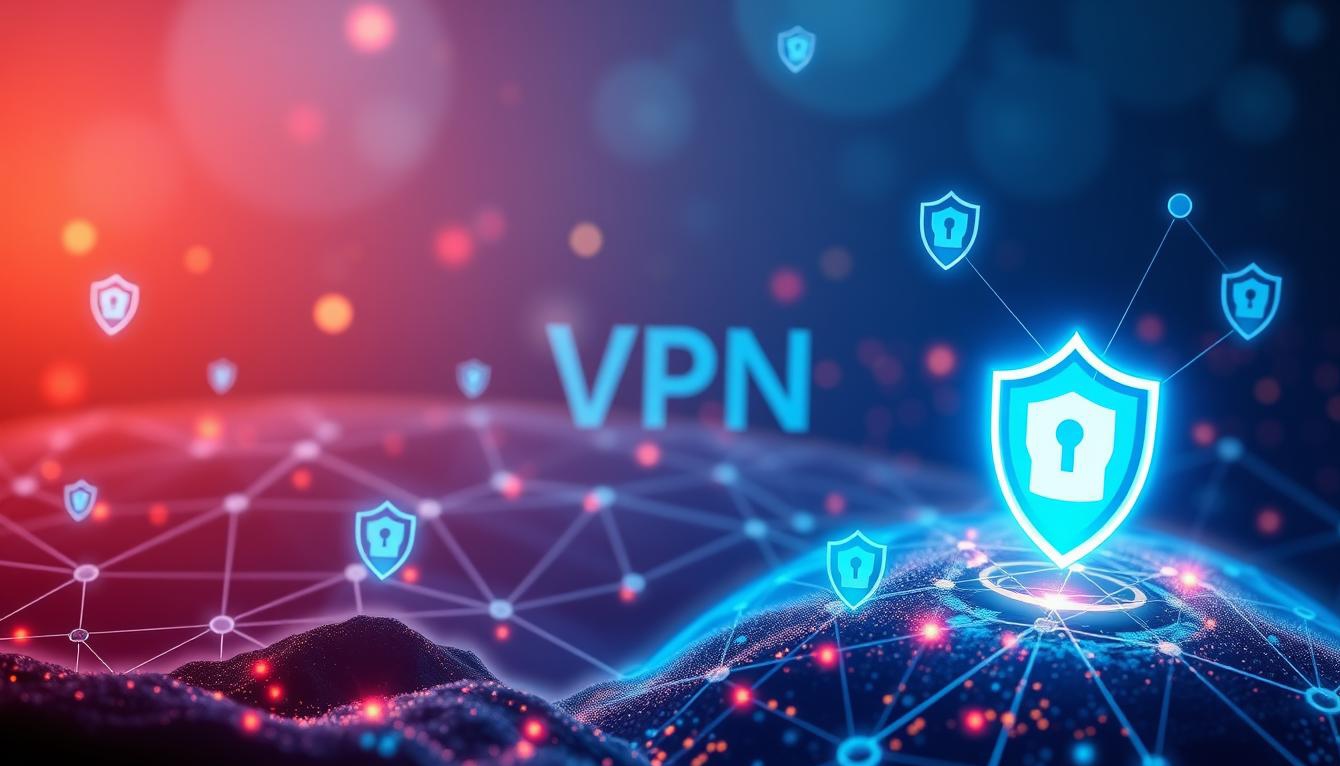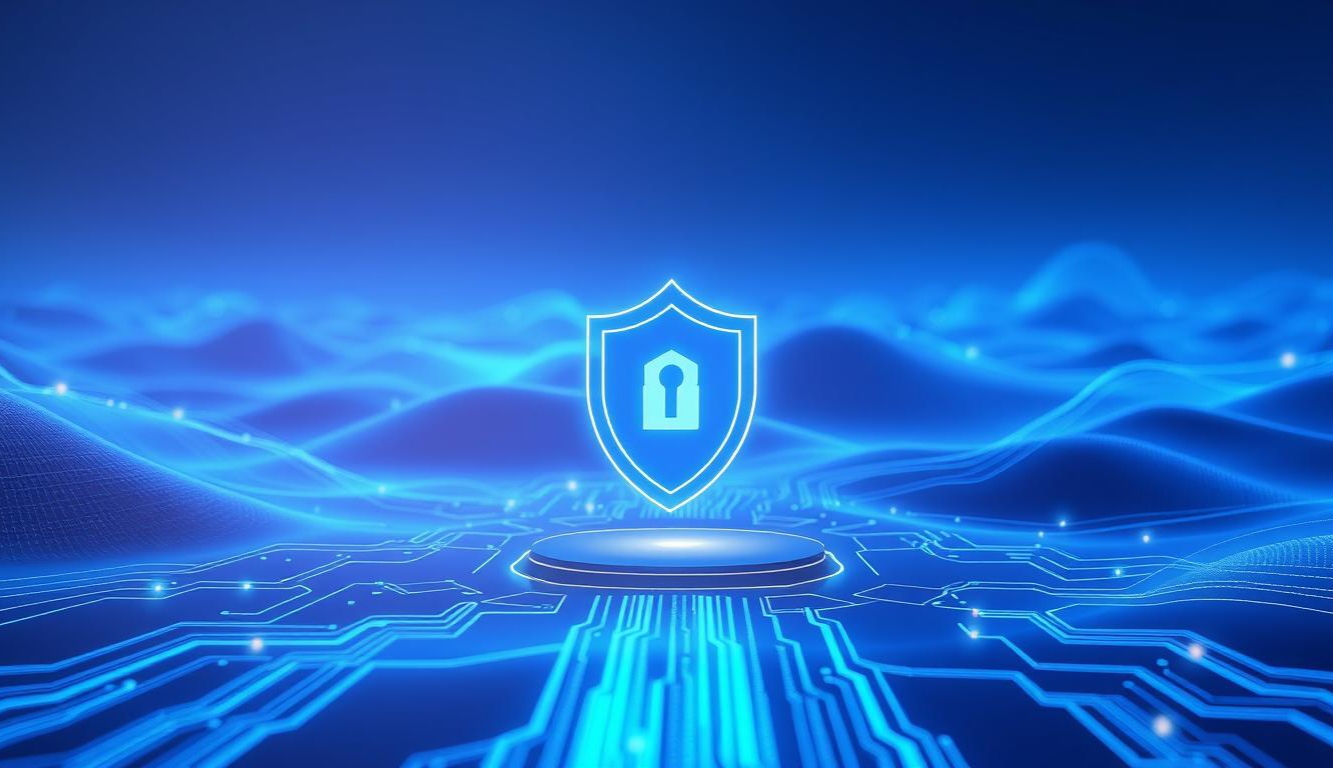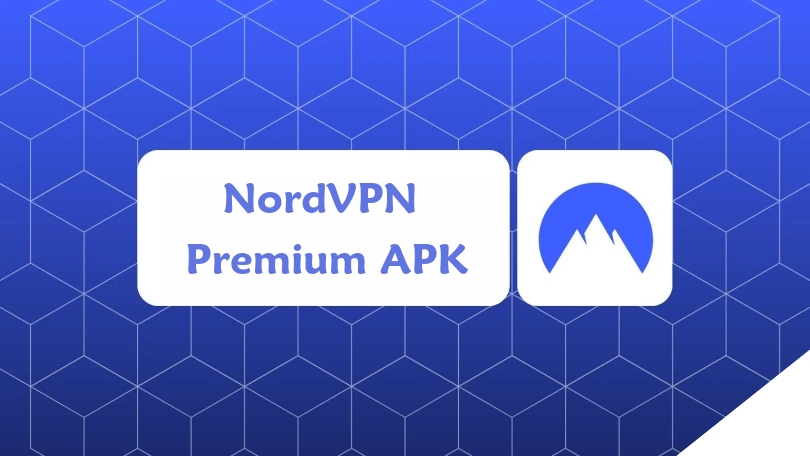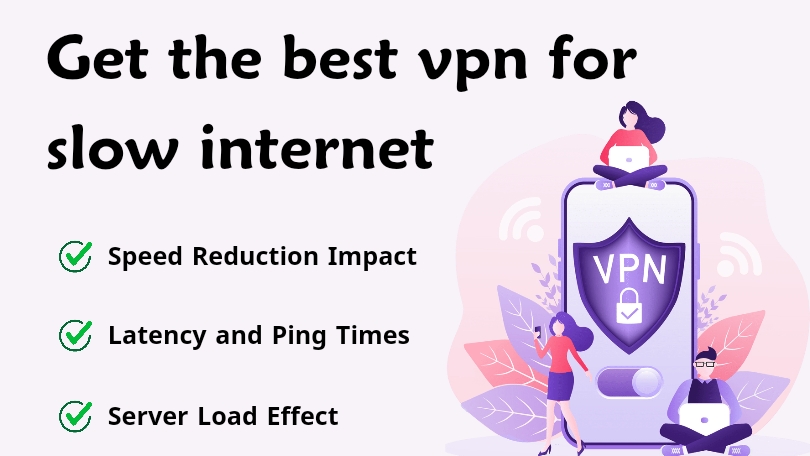
If you’re dealing with slow internet speeds, finding the right VPN can make a big difference. Whether you’re streaming, browsing, or downloading, a VPN can enhance your connection. But with many options, which VPNs are best for slow connections? We’ll review the top VPNs that improve speed and offer security, ease of use, and reliability.
2. The Best VPNs for Slow Internet
Let’s explore the best options for improving your slow internet experience
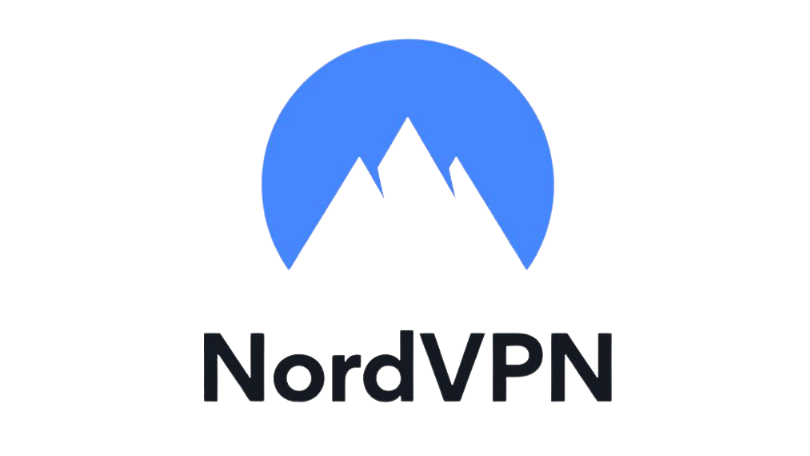

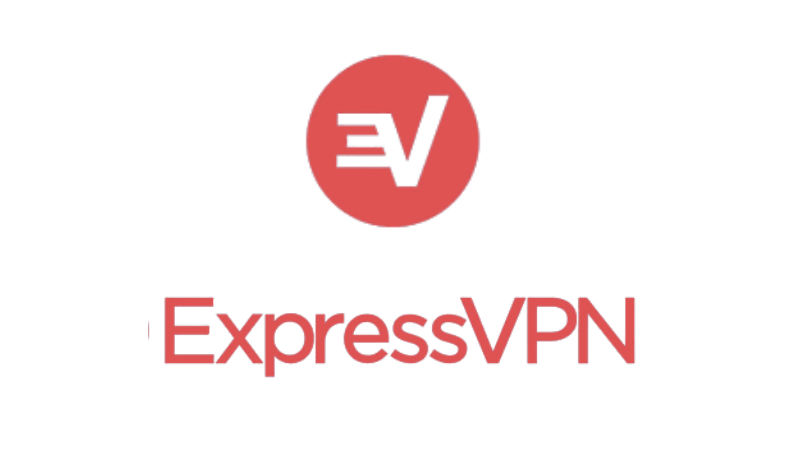


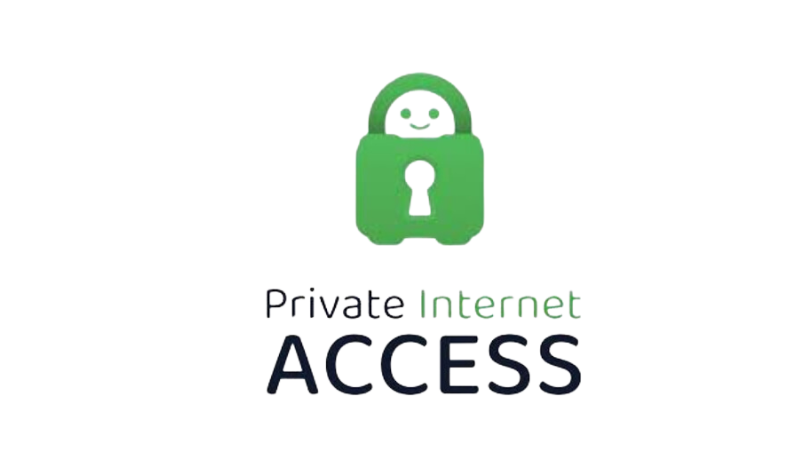


★ you tired of slow internet speeds?
You might wonder if a VPN can help. A VPN encrypts your data and sends it through a secure server. But does it really speed up your internet? Let’s look into how a VPN can affect your connection and if it’s a good fix for slow speeds.
1. How a VPN Works
A VPN works by sending your internet traffic through a server run by the VPN provider. This hides your real IP address and encrypts your data. But, this encryption can slow your internet speed, depending on several factors.
2. When a VPN Can Improve Slow Internet
In some cases, a VPN can make your internet faster. This happens when your ISP slows down your speeds for certain activities. A VPN can bypass this by encrypting your traffic, so your ISP can’t slow it down. This might make your internet speed better. Also, a VPN might find a faster route to the server you’re trying to reach. This can improve speeds for some activities.
3. When a VPN May Slow Down Your Internet
However, a VPN isn’t always the answer. It can slow down your internet for a few reasons:
Server Distance: The farther the VPN server is, the longer it takes for data to travel. This can slow your speeds, especially if the server is far away.
Server Load: If the VPN server is busy, it can cause delays and slow your internet.
Encryption Overhead: Encryption adds some extra work for your device, which can slow it down. The effect on speed depends on the VPN protocol and encryption level.
4. Best VPNs for Slow Internet
Server Availability: A VPN with many servers increases your chances of finding a fast one.
Choosing the right VPN is key if you’re using it for slow internet. Look for a VPN with fast servers and a wide network. This can help reduce the slowdown from encryption and distance.When picking a VPN for slow internet, consider these factors:
Fast VPN Protocols: Choose VPNs with protocols like WireGuard or OpenVPN for a good balance of speed and security.
Low Server Load: A VPN with well-performing servers can keep speeds high even when many people are using it.
5. Tips for Using a VPN with Slow Internet
Here are some tips to get the best performance from a VPN:
Switch Servers: If speeds are slow, try a different server. Some might be faster due to traffic and load.
Choose a Nearby Server: Connecting to a server close to you can reduce latency and keep speeds high.
Use a Wired Connection: Connecting with an Ethernet cable can improve speed and reduce interference, even with a VPN.
Upgrade Your Plan: If your internet is always slow, consider a faster plan from your ISP. This can help reduce the impact of the VPN on your speed.
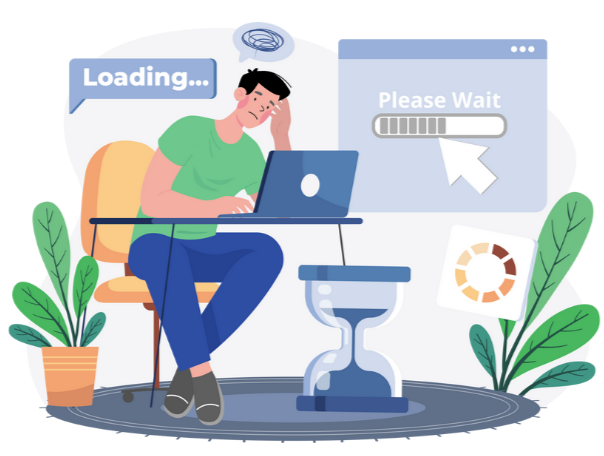
★ How Does VPN Affect Slow Internet?
Many wonder if a VPN can make slow internet better or worse. VPNs offer privacy, security, and can bypass geo-restrictions. But, their effect on slow internet speeds varies. We’ll look at how a VPN affects slow internet, when it helps, and when it doesn’t.
1. Can a VPN Improve Slow Internet?
Can a VPN speed up slow internet? It depends on why your internet is slow. If your ISP throttles your speed, a VPN might help. With a VPN, your data is encrypted and routed through a secure server. This stops your ISP from slowing down your connection. So, your speeds might get better for throttled activities. But, a VPN won’t fix slow internet due to poor infrastructure or a weak signal. It can’t overcome these issues.
2. Does VPN Slow Down Internet?
A VPN can help in some cases but can also slow you down. It routes your traffic through a remote server, adding an extra step. This can slow speeds, especially if the server is far or if encryption is involved. However, the slowdown depends on the VPN provider and server. Good VPNs have fast servers and minimal speed loss. Some even have servers for fast activities like streaming and gaming.
3. Choosing the Best VPN for Slow Internet
Choosing the right VPN for slow internet is key. Look for fast servers, low latency, and strong encryption. A VPN with many servers increases the chance of finding a close one, reducing speed drops.1Also, choose a VPN with a kill switch and split tunneling. A kill switch ensures your internet stays secure if the VPN drops. Split tunneling lets you use your normal connection for non-sensitive activities.
4. When Not to Use a VPN for Slow Internet
VPNs aren’t always the best for slow internet. If your issues are due to outdated equipment, a poor signal, or network congestion, a VPN won’t help. Instead, upgrade your hardware, move closer to your router, or contact your ISP.1Also, if you need ultra-high-speed connections for gaming or 4K streaming, a VPN might slow you down. Test your VPN to see if it meets your needs.
5. Is VPN Worth It for Slow Internet?
In conclusion, a VPN can help or hinder slow internet, depending on the cause. If ISP throttling is the issue, a VPN can bypass it and improve speed. But, if your internet is slow due to hardware or distance, a VPN might slow you down further.1To get the best results, choose a reliable VPN with a large server network and test its performance before committing to it. Whether a VPN for slow internet is worth it depends on your specific needs and circumstance.
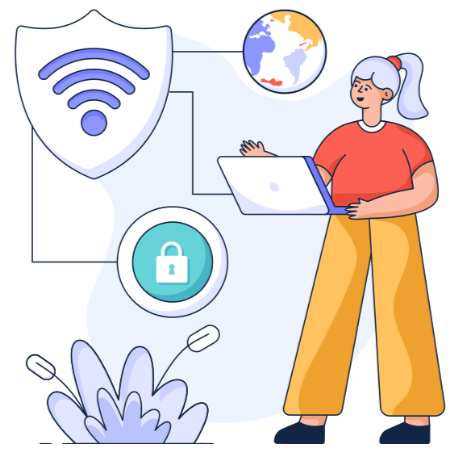
★ Is Using a VPN for Slow Internet Worth It?
Many users turn to a VPN for slow internet hoping to improve their experience. But is it worth it? We’ll explore if a VPN can speed up a slow connection, its benefits, and if it’s the right solution for slow speeds.
1. Can a VPN Improve Slow Internet Speeds?
Using a VPN can improve slow internet speeds, but it depends on several factors. If your ISP throttles your connection, a VPN can bypass this. It encrypts your data and routes it through a different server, potentially leading to faster speeds.1However, a VPN won’t increase your speed if the issue is weak connection or long distances from the server. In some cases, it might even slow your connection slightly due to encryption and server rerouting.
2. Will a VPN Make Slow Internet Worse?
A VPN might improve speed in some cases but could also slow your connection further. The encryption and server rerouting process can add overhead, making your internet seem slower. But, many VPNs are optimized for performance, and the right choice can minimize the impact. Choosing a high-quality VPN with fast servers near you can help. Some VPNs offer split-tunneling features to reduce the performance hit on non-encrypted tasks.
3. What Is the Best VPNs for Slow Internet?
Choosing the right VPN is key for slow internet. Look for a VPN with fast, reliable servers close to you. This reduces latency, which is important for slow connections. Some VPNs have servers optimized for streaming or gaming, which can reduce lag and buffering. Also, find a VPN with a user-friendly interface to easily switch servers for the best speed.
4. Can a VPN Reduce Lag on Slow Internet?
A VPN might reduce lag if ISP throttling is the cause. Encrypting your data and routing it through a VPN server can bypass throttling and improve performance. But, if the lag is due to poor infrastructure or distance, a VPN won’t help.
5. Is Using a VPNs for Slow Internet Worth It?
In conclusion, a VPN can be worth it in certain situations. It can bypass ISP throttling and provide better speeds. It also offers privacy and security while browsing or streaming. But, a VPN won’t fix all slow internet issues. If your slow speeds are due to weak infrastructure or distance, a VPN might not improve things and could even slow them down further.
Using a VPN for slow internet can be a good idea if you need to avoid throttling or keep your online activities private. However, it might not solve all speed issues. If you choose to use a VPN, pick one with fast and reliable servers. Also, try different settings to see what improves your internet speed the most.
the top vpn OVERALL

Excellent security with double VPN and CyberSec. Over 5,000 servers in 60+ countries, fast speeds, and strong privacy. Ideal for streaming and torrenting.

Budget-friendly, unlimited device connections. Strong encryption, no-logs policy, and effective for streaming. Includes CleanWeb feature to block ads and trackers.

Fast speeds, strong security, and ease of use. Large server network, strict no-logs policy, and 256-bit encryption. Great for streaming services and robust privacy protection.

★ How we rate top vpn for slow internet
1. Speed
Speed is key for users with slow internet. Some VPNs use advanced protocols for better speed, like NordLynx by NordVPN. It’s built on WireGuard technology for faster performance. ExpressVPN’s Lightway protocol also boosts speed, even on slower networks. Surfshark uses WireGuard for fast and stable connections, great for slow internet.
2. Server Network
A big server network ensures fast and stable connections. More servers mean better speed. NordVPN has over 5,000 servers in 60 countries for optimal performance. ExpressVPN has servers in 94 countries for fast access. CyberGhost has servers for streaming and P2P to reduce lag and increase speeds.
3. Ease of Use
Easy setup is important for users with slow internet. A simple app means faster connection without slowing your internet. VPNs like Surfshark and CyberGhost have user-friendly interfaces. They provide clear instructions and default settings for quick activation, avoiding technical issues.
4. Security and Privacy
Speed is important, but security and privacy matter too. A VPN should offer strong encryption and security protocols without slowing you down. ExpressVPN uses AES-256 encryption for top security and speed. IPVanish has a no-logs policy for privacy and performance. They also have DNS leak protection and kill switches for data safety.
VPNs like NordVPN, ExpressVPN, Surfshark, are top choices for slow internet. They balance performance and protection, improving your online experience. If you’re looking for the best VPN for slow internet, these options offer the perfect mix of speed and reliability.

Thank you for reading!
We hope this article helped you find the best VPN for your slow internet connection. If you have any questions or want to learn more, feel free to reach out. Your support encourages us to keep providing valuable and fresh content!

